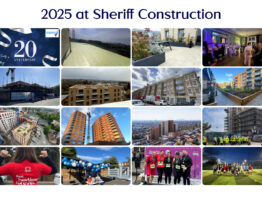
Once upon a time (before we headed into today’s digital world), the main distraction most of us had during a working day was a conversation about the best of last night’s television over tea break!
But now, with notifications informing us of the arrival of the latest email, text, WhatsApp or social media post/ story, our working days can sometimes feel like one long interruption, resulting in little progress on the ‘to do’ list.
There are, however, methods which can be used to get around this problem so, today, we’re going to look at an approach called ‘deep work’. Read on to find out how you can kill those distractions and get more done.
What’s the problem?
As a modern-day juggler of digital devices, you might think you’ve got the distractions that come with them under control. Answering that email only took you away from your current task for a few minutes and a quick WhatsApp only took seconds, right?
Wrong!
After studying the effects of digital distractions, Professor Gloria Mark, from the University of California, reported that when people get these kind of interruptions at work, it can take a full 23 minutes before they get back to their original task!
That might not be that bad if it happened once or twice a day but, as we all know that’s not the case and these distractions come thick and fast.
Test yourself right now. To read this blog from start to finish will only take a few minutes but see if you can get through it without pausing to check your phone or click on a new message alert that pops up in the corner of your screen.
Well done if you managed it but, if not, don’t worry. We all do it and, because the distractions are so constant, it’s started to become really difficult to find the concentrated time we need to complete our real work.
The ‘deep work’ solution
Here’s a thought: Rather than focusing on how bad distraction is in our lives, how about we flip that page and focus instead on the benefits of its complete opposite – deep work.
This is an approach that’s encouraged by Cal Newport, professor and author of the bestselling book ‘Deep Work: Rules for Focused Success in a Distracted World’.
In the book, Newport makes the case that, while most people spend their days in a frantic blur of email and social media, there is a much better way and that starts by recognising the difference between ‘deep’ and ‘shallow’ work. Here’s how Newport puts it:
Deep work: “Professional activity performed in a state of distraction-free concentration that push your cognitive capabilities to their limit. These efforts create new value, improve your skill, and are hard to replicate.”
Examples: programming, researching, data analysis, financial planning, writing thoughtful content, developing strategy, budgeting, preparing valuations and quality assessments.
Shallow work: “Non-cognitively demanding, logistical-style tasks, often performed while distracted. These efforts tend to not create new value in the world and are easy to replicate”.
Examples: email, chat, checking social media, simple data entry and a great many meetings (over 70% of which are unproductive!).
Build your new routine
How many times do you get to the end of a working week with many of the same things on your ‘to do’ list as you started out with?
If you look back, you’ll probably see that this is not because you didn’t try to achieve what you wanted to do but rather that the shallow work interruptions took over. While it’s necessary to give routine tasks like checking emails some time and attention, it shouldn’t be the primary focus of anyone’s work. Here’s how you can turn things around.
1. Identify what’s on your task list and split it into deep v shallow work
If you find this difficult, giving everything a priority level might help, for instance:
- Urgent and important: Complete before anything else.
- Important but not urgent: Block out some uninterrupted deep work time in your calendar before the deadline.
- Urgent but unimportant: Delegate it (if you can) or move to your shallow work list.
- Neither urgent or important: Remove from your ‘to do’ list.
2. Time-block your calendar
Most people use their work calendars only to organise meetings/ appointments but if you want to be sure of getting your most important tasks done, it can be helpful to block out the time you need for this on your calendar too.
So, work out what part of the day you feel most focussed and block those hours for deep work. For example, if you’re more focused in the mornings, you might allocate 8.00-9.00 for some quick shallow work (catching up on messages, checking in with management/ colleagues etc), but block off your peak 9.00 – 12.00 slot for deep work sessions. This leaves you with the afternoons for calls, meetings, email, and other activities that require less focus. Remember to allow time for breaks.
3. Communicate your availability
The good thing about putting task-related time-blocks in your calendar is not only that it help you to focus on one thing at a time; it also lets colleagues know that you’re ‘busy’ and not to try to drag you into a meeting or any other distraction. Make sure your colleagues are aware that your blocked-out time is off limits!
Using headphones to communicate the ‘do not disturb’ message during deep work time is another good trick (just make sure to download a focus-music playlist rather than a podcast or anything too distracting).
4. Switch off notifications
You might be a bit reluctant to do this but, once you’re used to the idea, you may well find that turning off message notifications feels like a new form of freedom. You’ll still get those messages but the difference is you won’t have your focussed work time interrupted and, rather than looking and responding to them when a ‘ping’ tells you to, you can do this as at a time that best suits you.
You could go through each app to switch off notifications individually or use Focus Assist on Windows and Focus Mode on your phone to effectively activate a ‘do not disturb’.
To ensure you don’t miss anything urgent, you could still allow calls to come through or select another single line of communication that still allows notifications.
Tap into the benefits of going deep
We are all going to have to continue working in a world where we need to attend to the everyday shallow work alongside our deep-focus work. The key is to find a balance and develop a schedule that allows enough time for your most demanding tasks.
In his book, Cal Newport describes deep work as “like a superpower in our increasingly competitive twenty-first-century economy” with the benefits including the ability to process complicated information quicker, being able to get more and better quality work done in less time, and finding a greater sense of fulfilment in your work.
Why not tap into that superpower and give the deep work approach a go today!
28.06.2022
Feature image: Freepik








